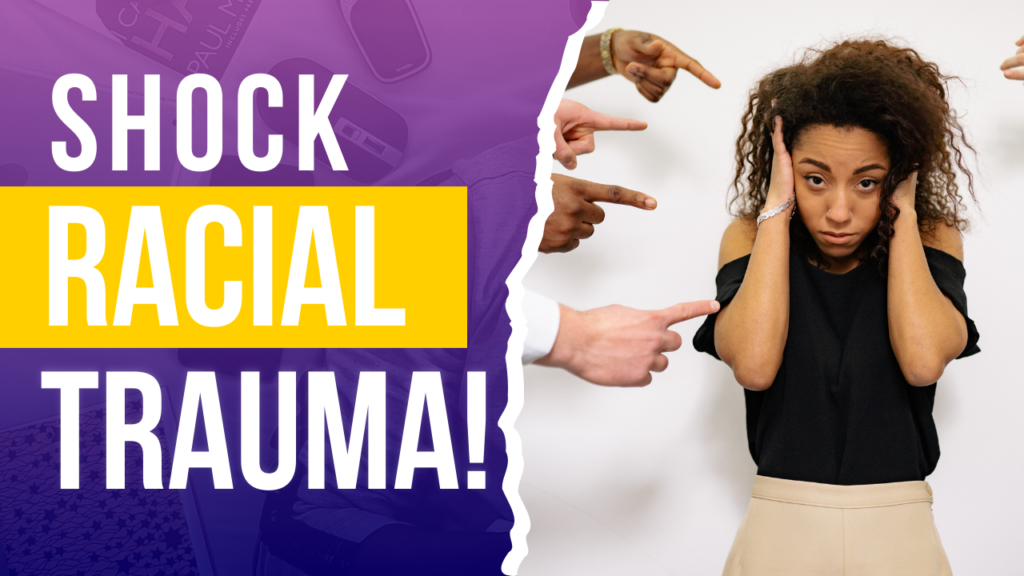
Powered By BlackTraumaGPT.com
Researched and Curated By Rev. Dr. Philippe SHOCK Matthews
(Black Trauma and Mental Health Specialist | Prompt Eng | GPT Dev | Research Scientist | Africana Phenomenologist | Black AI Corsortim co-Founder | Black Mental Health Podcast Host)
“Negative utility shock” is a term in economics and sociology that describes a sudden decline in perceived value, well-being, or satisfaction within a group. According to the 2011 study “The Politics of Hope and Despair: The Effect of Presidential Election Outcomes on Suicide Rates,” supporting a losing candidate in a presidential election can result in a negative utility shock. This shock is essentially a decrease in an individual’s perceived well-being or satisfaction due to the election outcome. This shock often results from unexpected, disappointing, or destabilizing events, affecting people’s sense of security, trust, and optimism. The study suggests that this negative utility shock tends to increase suicide rates in states that supported the losing candidate. In the context of politics and the experiences of Black communities, a negative utility shock can emerge from witnessing setbacks in representation, justice, or social progress.
Kamala Harris, a figure many viewed as a symbol of change and representation for both Black and South Asian communities, lost the 2024 presidential race, this could create a sense of collective disillusionment. For Black people, especially, the impact might be multi-layered due to the high stakes and hope for policy shifts, social justice advancements, and visibility within the highest echelons of American politics. Key areas where negative utility shock might surface include:
1. Disappointment in Representation and Symbolic Hope
- Cultural and Identity Affirmation: Kamala Harris’s presence in the executive branch represented progress in terms of representation for many marginalized groups. The symbolism of her position may inspire young Black women and girls, offering a sense of belonging and possibility in leadership roles. A sudden loss in a presidential bid might fuel feelings of lost momentum for visible Black and multi-ethnic representation.
- Pride and Solidarity: Often, leaders like Harris become symbols of resilience and achievement against systemic obstacles. Losses in such instances may dampen the morale of communities who identify with her struggles and achievements, leading to a ripple effect in terms of solidarity and pride in perceived collective advancement.
2. Impact on Policy Hopes and Tangible Change
- Social and Economic Justice: Black communities are disproportionately impacted by issues like police violence, mass incarceration, healthcare inequity, and educational disparities. A Harris presidency would likely bring expectations of direct policy action on these fronts. Losing the presidential bid could trigger disappointment in policy inaction or a slowdown on key reforms, affecting the day-to-day lives of Black Americans dealing with systemic inequalities.
- Mental Health and Trauma Healing: High-profile leaders who speak openly about social justice and mental health play a significant role in advocating for Black trauma and healing policies. Without Harris’s visibility or advocacy, Black people may feel they’re missing an ally in confronting issues like racial trauma, police brutality, and systemic bias in healthcare.
3. Erosion of Trust in Political Systems and Structural Accountability
- Systemic Distrust: Many Black Americans have a deep-rooted mistrust in political systems that have historically sidelined their needs and voices. Harris’s presence as a top political figure challenged this notion to some degree, indicating that change could be achieved through representation. A loss could reinforce doubts about whether the political system truly values Black leaders or policies favoring marginalized groups.
- Historical Context and Recurring Disillusionment: The effects of this shock would not just be personal but rooted in a history of political promises unfulfilled for Black communities, creating a cyclical pattern of hope followed by disenchantment. The legacy of broken promises, delayed justice, and perpetuated inequality can deepen a sense of skepticism toward future leadership claims of equity and progress.
4. Cultural Impact and Media Representation
- Media Reflection: Media coverage of Harris’s presidential campaign has the power to challenge or reinforce narratives about Black women in politics, where successful campaigns could open doors and normalize diversity in leadership. Her loss, however, could reinvigorate damaging stereotypes, influencing how Black women are perceived in professional and political spaces.
- Youth Empowerment and Aspiration: Leaders in high office serve as role models. Harris’s loss might negatively impact the aspirations of young Black Americans who see her journey as part of their own potential narrative. Watching her struggle or fail to attain higher office could potentially discourage some from pursuing similar roles, believing that systemic barriers are insurmountable.
Moving Forward: Strategies for Resilience and Empowerment
Addressing the impact of such a political disappointment requires both personal and community-level strategies:
- Political Education and Grassroots Action: Strengthening political awareness, particularly on the power of local and state advocacy, could redirect some of the negative energy into constructive change.
- Mental Health and Community Healing Spaces: Healing circles, community dialogues, and culturally relevant therapy could offer spaces to process disappointment, anger, and frustration. Cultural empowerment practices, emphasizing African-centered or faith-based resilience, can be healing.
- Building Intergenerational Leadership Pipelines: Fostering networks of younger Black leaders ensures that representation does not hinge on one individual, cultivating a community-driven leadership culture where collective support sustains progress regardless of individual setbacks.
In short, while Harris’s loss could represent a setback in representation and policy hope, it also highlights the need for continued resilience and community-building efforts that are not solely dependent on single individuals but are built to withstand systemic challenges.
———————
If nothing is wrong with you and something happened to you…are you ready to find out what to do about it? Shock Trauma Spiritual Counseling Discovery Call https://t.ly/VJWqJ | BlackTraumaGPT.com: Beginner’s User Guide https://bit.ly/4enIlvc | Programming chatGPT for Black Self Mental Health, Trauma, and Healing https://amzn.to/47P8MXK
May These Words Of Power Inspire You To Greatness!
Nothing Is Wrong With Black People…Something Happened to Black People by The Metaphysical Morpheus — AVAILABLE ON SPOTIFY https://spoti.fi/3mSnPIt, ITUNES & APPLE MUSIC https://apple.co/38wzebR, AMAZON MUSIC https://amzn.to/3pofTAy and IHEARTRADIO] ♫ https://ihr.fm/2NTxYsI
Enjoying Our Content?
Become a member of our Patreon to get the latest research on Racial Black Trauma! https://www.patreon.com/revshock. Or buy Rev. SHOCK a Coffee! https://bit.ly/3yg5D7A


Book A Discovery Call
Are you ready to SHOCKtrauma? Click HERE now to book a discovery call with Rev. Dr. Philippe SHOCK Matthews

Get Social with Doc SHOCK:
PATREON: https://t.ly/mjksf | REV. DR. SHOCK (PERPLEXITY PAGE): https://t.ly/ppjwh | SOLO: https://solo.to/revshock | BIO: https://t.ly/Ko_y_ | BLOG: https://t.ly/j6bh0 | PODCAST: https://t.ly/cB5GD | ENDORSEMENT: https://t.ly/jFErO | THREADS: https://t.ly/SoKkT | IG: https://t.ly/XsN8f | FB: https://t.ly/R3r9Y | X: https://t.ly/iJ-wy | LINKEDIN: https://t.ly/GZ0pe | TIKTOK: https://t.ly/zfp60 | BLACK TRAUMA GPT: https://t.ly/vswbs | BLACK AI CONSORTIUM: https://t.ly/uiRZN | BOOKS BY PM: https://t.ly/vvHMd
